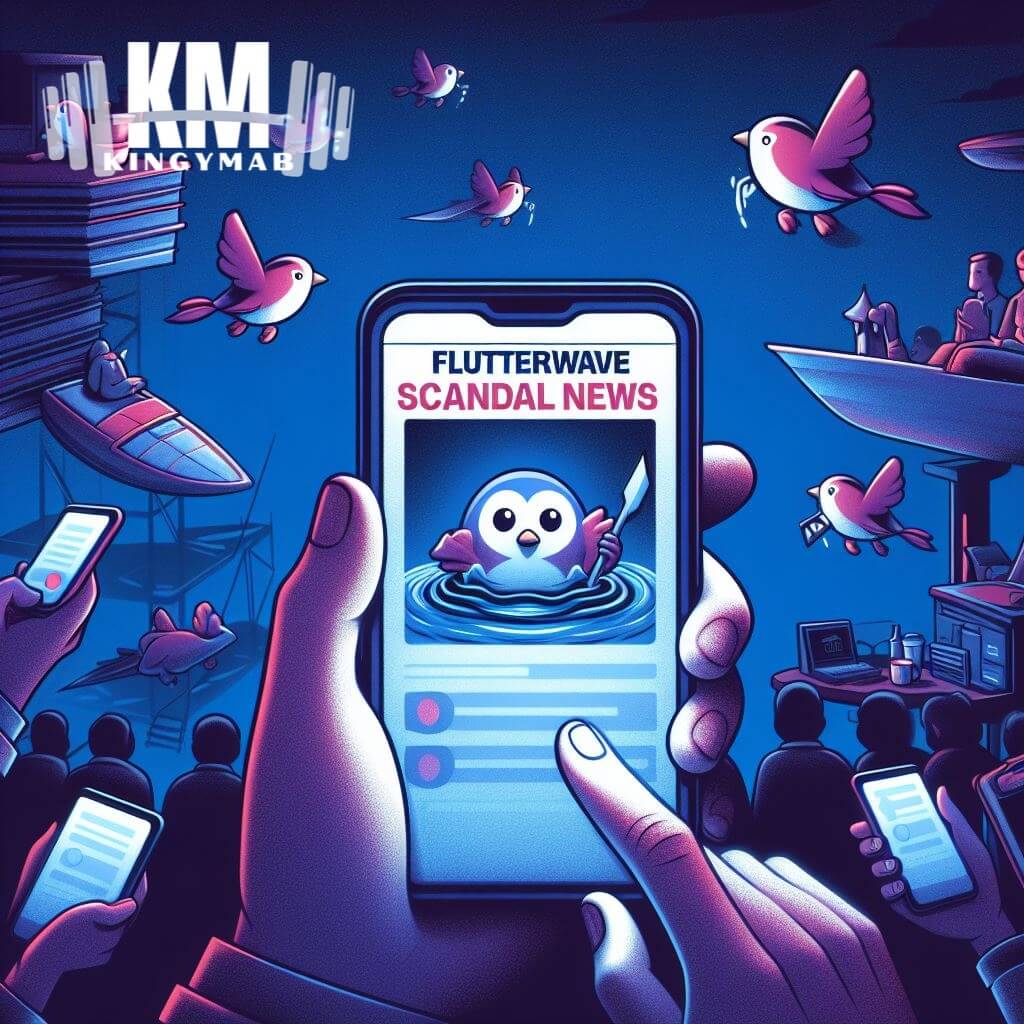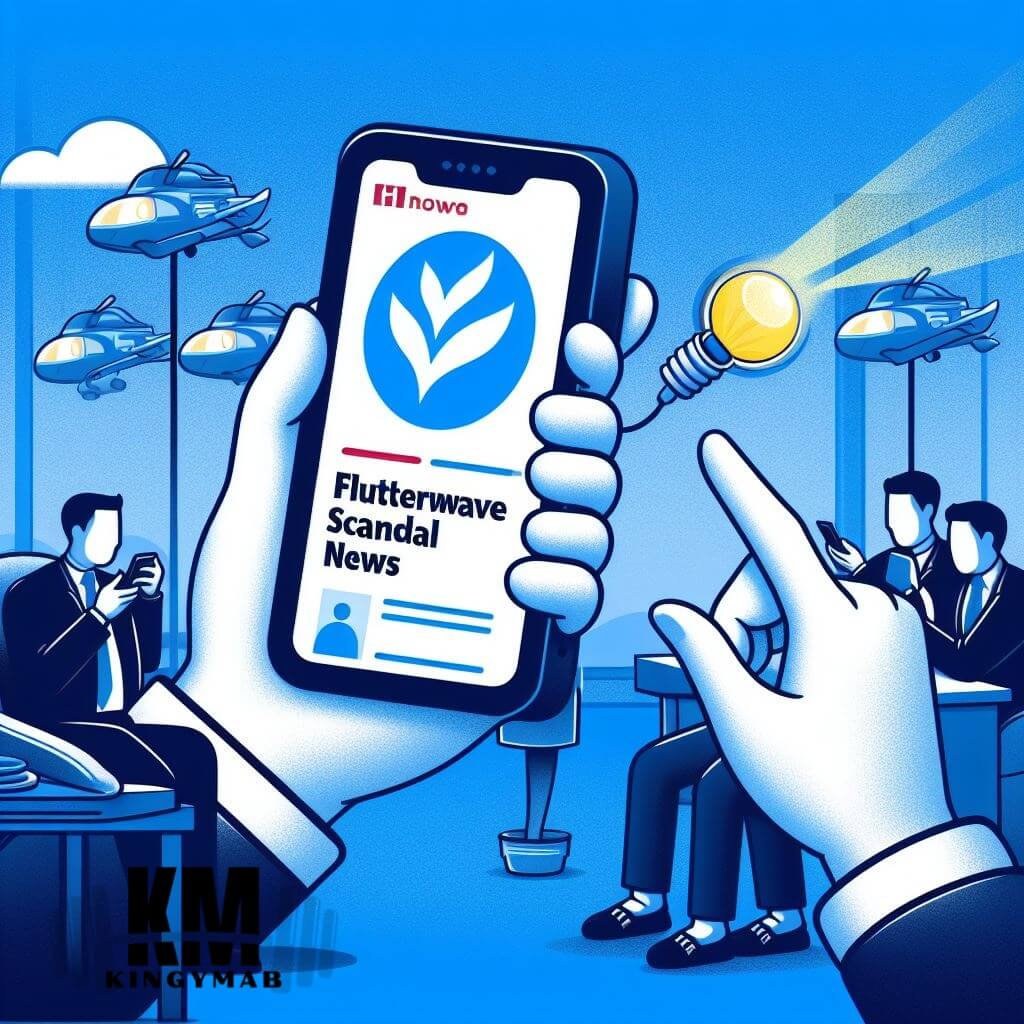Introduction
As the fintech sector in Africa soars, attracting billions of dollars in investment and giving rise to many unicorn businesses, a shady figure has formed over one of the mainland’s brightest lights, Flutterwave.
The IT industry has been wobbled by the claims involving this Nigerian unicorn and its founder, Olugbenga “GB” Agboola. These charges increase deep worries about workplace culture, governance, and the possible repercussions of unbridled expansion.
I examine the essence of the Flutterwave scandal, investigating the allegations, considering the ramifications, and delivering my thoughts on the lessons this cautionary story may teach us.
Through exactly researching the events, allegations, and responses, I aim to be transparent about the challenges facing Africa’s burgeoning fintech ecosystem and the imperative for sustainable, ethical growth.
Key Takeaways Flutterwave Scandal
- The Flutterwave scandal highlights the governance and cultural challenges facing Africa’s rapidly evolving fintech industry.
- Allegations of bullying, harassment, fraud, and corrupt practices have spoiled Flutterwave’s prestige and raised investor concerns.
- Prioritizing moral leadership, strong corporate governance, and positive workplace cultures is crucial for sustainable growth.
- Strengthening regulatory frameworks, industry collaboration, and responsible investment practices is essential for mitigating risks and promoting transparency.
- Transparency, stakeholder engagement, and open communication are vital for building trust and credibility within the fintech ecosystem.
- The lessons from the Flutterwave scandal provide an opportunity for course correction and the establishment of best practices for ethical and responsible business conduct.
The Rise and Fall of a Unicorn
The rise of Flutterwave was nothing short of sensational. Founded in 2016, the firm made a name for itself as a significant force in the African fintech market by offering scalable payment options and facilitating cross-border trades for companies all over the continent.
By 2021, Flutterwave had become a unicorn and the most valuable financial firm in Africa, with a valuation of more than $3 billion.
But the first cracks showed only a few weeks after this significant turning point. Early in April 2022, Clara Odero, the CEO of Kenyan fintech Credrails and a former employee of Flutterwave, accused Agboola and the firm of bullying and carelessness.
More allegations ensued, including possible fraud, lowballing employee share options, and ghost co-founder identities.
The Allegations in Focus of Flutterwave Scandal

Numerous serious charges have been made against Flutterwave and Agboola, presenting a picture of a corporation troubled by problems with governance, a hostile job environment, and questionable commercial activities.
| Allegation | Description |
| Bullying and Harassment | Former employee Clara Odero accused Agboola of sustained bullying and intimidation. |
| Phantom Co-founder | Reports suggest Agboola created a fictitious co-founder identity to award himself more shares. |
| Share Option Manipulation | Allegations of offering low-ball prices for employee share options that went to Agboola’s investment vehicle. |
| Money Laundering and Fraud | Kenyan authorities accused Flutterwave of facilitating money laundering and fraud, leading to frozen funds. |
Let’s look at a few of the central assertions:
- Bullying and Harassment: During her term at Flutterwave, Agboola was allegedly subjected to ongoing bullying, pressure, and harassment, according to Clara Odero. Other staff members have reported similar situations, and when tech workers shared their tales of abuse and harassment on social media, the hashtag #HorribleBosses became popular.
- Phantom Co-founder Controversy: Rumors were circulating that in the firm’s early years, Agboola had made up a false name as a co-founder to get a more significant financial stake. Flutterwave denied these allegations, claiming to have complied with all legal requirements.
- Employee Share Option Manipulation: There have been claims that Agboola gave his staff members lowball pricing for their share options, which he subsequently used to fund an investment entity under his direction. The firm has rejected these assertions as untrue.
- Money Laundering and Fraud Accusations: Flutterwave was involved in a legal dispute in Kenya because that nation’s Assets Recovery Agency (ARA) accused the firm of aiding in fraud and money laundering. Flutterwave’s accounts were blocked with millions of dollars, albeit part of the money was freed.
Flutter Wave’s Response
Throughout the scandal, Flutterwave and Agboola have maintained their integrity, rejecting misconduct and disregarding the allegations as false. In a statement to the media, the company said:
“Flutterwave is a private company, and we have followed all legal processes and procedures to allow third parties, including former employees, to sell their shares to other third parties. As part of our commitment to operating an ethically responsible company in adherence with all suitable laws, we take claims of this nature seriously and act when right to maintain high workplace standards.”
However, their responses have done little to quell the growing concerns among the tech community and investors.
Implications and Ripple Effects
The Flutterwave scandal has far-reaching implications that extend beyond the company itself, casting a shadow over Africa’s fintech ecosystem and raising critical questions about governance, transparency, and the role of international investors.
| Implication | Description |
| Workplace Culture and Employee Well-being | Toxic culture can lead to high turnover, low productivity, and impact on product quality. |
| Governance and Regulatory Challenges | Highlights the need for improved governance, compliance, and anti-money laundering protocols. |
| Investor Confidence and Reputation | Scandals can dampen investor enthusiasm, leading to stricter due diligence and higher barriers to entry. |
| Collaboration and Knowledge Sharing | Fostering open dialogues, sharing best practices, and leveraging expertise is crucial for addressing challenges. |
Workplace Culture and Employee Well-being
The allegations of bullying, harassment, and toxic workplace culture strike at the core of employee well-being and talent retention. In a highly competitive industry where top talent is crucial, such practices can have severe consequences, deterring prospective employees and contributing to high turnover rates.
Furthermore, a toxic work environment can ripple effect on productivity, innovation, and overall company performance, ultimately impacting the quality of products and services offered to customers.
Governance and Regulatory Challenges
The Flutterwave scandal has highlighted the pressing need for improved governance and regulatory oversight within Africa’s fintech sector. As the industry attracts significant investment, robust governance structures and compliance measures are imperative to ensure transparency, accountability, and ethical business practices.
Moreover, the allegations of money laundering and fraud underscore the importance of comprehensive risk management and anti-money laundering (AML) protocols for individual companies and the broader ecosystem.
Investor Confidence and Reputation
One of the most significant implications of the Flutterwave scandal is its potential impact on investor confidence and the reputation of Africa’s fintech industry. As international investors flock to the continent, seeking high-growth opportunities, scandals like this can raise red flags and dampen enthusiasm.
Investor apprehension could lead to more stringent due diligence processes, increased scrutiny, and potentially higher barriers to entry for local startups seeking funding. This, in turn, could stifle innovation and impede the industry’s growth trajectory.
Collaboration and Knowledge Sharing
In such challenges, collaboration and knowledge sharing among stakeholders become paramount. By fostering open dialogues, sharing best practices, and leveraging the expertise of local and international investors, the fintech ecosystem can collectively address governance deficiencies, cultivate ethical business practices, and promote sustainable growth.
Lessons Learned and Moving Forward
While the Flutterwave scandal has cast a dark shadow, it also presents an opportunity for reflection, learning, and course correction. By examining the events and their implications, we can extract valuable lessons that can shape the future of Africa’s fintech industry.
| Lesson/Recommendation | Description |
| Ethical Leadership and Corporate Governance | Implement comprehensive governance frameworks, promote integrity, transparency, and accountability. |
| Positive and Inclusive Workplace Culture | Cultivate respect, diversity, open communication, and avenues for addressing concerns. |
| Regulatory Frameworks and Industry Collaboration | Develop clear guidelines, standards, and oversight mechanisms in collaboration with stakeholders. |
| Responsible Investment and Due Diligence | Evaluate governance practices, workplace culture, and business ethics of potential investees. |
| Transparency and Stakeholder Engagement | Prioritize open communication, public disclosures, and stakeholder engagement initiatives. |
Prioritizing Ethical Leadership and Corporate Governance

One of the most crucial lessons emerging from this saga is the imperative of ethical leadership and robust corporate governance. Leaders in the fintech space must embody and promote values of integrity, transparency, and accountability, setting the tone for the entire organization.
Companies should implement comprehensive governance frameworks with clear policies and procedures that address issues such as conflict of interest, whistleblower protection, and fair treatment of employees. Regular audits, independent oversight, and rigorous compliance measures can strengthen governance practices.
Fostering a Positive and Inclusive Workplace Culture
The allegations of bullying, harassment, and toxic workplace culture serve as a stark reminder of the importance of creating a positive and inclusive environment for employees. A healthy work culture promotes employee well-being and retention and fosters innovation, creativity, and productivity.
Companies should prioritize initiatives that cultivate respect, diversity, and open communication while allowing employees to voice concerns and seek redress without fear of retaliation. Comprehensive training programs, mentorship opportunities, and clear policies addressing workplace conduct can contribute to a positive and inclusive culture.
Strengthening Regulatory Frameworks and Industry Collaboration
Regulatory frameworks must evolve to keep pace with the rapid technological advancements and increasingly complex business models to ensure the sustainable growth of Africa’s fintech industry. Regulators should work closely with industry stakeholders to develop clear guidelines, standards, and oversight mechanisms that promote transparency, consumer protection, and financial integrity.
| Risk | Mitigation Strategy |
| Governance Failures | Implement robust governance frameworks, regular audits, and independent oversight. |
| Unethical Business Practices | Develop and enforce clear codes of conduct, whistleblower protection policies, and compliance measures. |
| Regulatory Non-compliance | Collaborate with regulators, stay updated on regulatory changes, and implement necessary controls. |
| Reputational Damage | Prioritize transparency, stakeholder engagement, and proactive communication strategies. |
| Talent Retention | Foster a positive workplace culture, provide growth opportunities, and address employee concerns promptly. |
Moreover, industry collaboration and knowledge sharing can play a pivotal role in driving best practices, identifying emerging risks, and developing collective solutions. By fostering partnerships and establishing industry-wide codes of conduct; the fintech ecosystem can collectively raise the bar for governance and ethical business practices.
Embracing Responsible Investment and Due Diligence
The Flutterwave scandal has highlighted the importance of responsible investment and robust due persistence processes. International investors must go beyond the attraction of high-growth opportunities and meticulously consider potential investees’ governance practices, workplace culture, and business ethics.
Collaborating with local investors and advisors who deeply understand the regional landscape can provide invaluable insights and mitigate risks. Additionally, investors should actively engage with their portfolios.
Embracing Responsible Investment and Due Diligence (continued)
Working together with local advisers and investors who thoroughly understand the area may reduce risks and yield priceless insights.
| Stakeholder | Roles and Responsibilities |
| Entrepreneurs and Company Leaders | Cultivate ethical leadership, implement governance best practices, and promote positive workplace cultures. |
| Investors | Conduct thorough due diligence, engage with portfolio companies, and provide guidance on ethical practices. |
| Regulators | Develop clear regulatory frameworks, collaborate with industry stakeholders, and enforce compliance measures. |
| Industry Associations | Facilitate knowledge sharing, promote best practices, and establish industry-wide codes of conduct. |
| Employees | Uphold ethical standards, report concerns through proper channels, and contribute to a positive work environment. |
Investors should also actively interact with portfolio firms, offering direction and assistance in implementing best practices for compliance, governance, and moral behavior.
Promoting Transparency and Stakeholder Engagement
Transparency is the cornerstone of sound management and is crucial to establishing trust and credibility in the fintech sector. Businesses should prioritize open and proactive communication with all stakeholders, including staff members, investors, clients, and regulators.
Regular reporting, public disclosures, and stakeholder engagement programs may promote a culture of openness. This facilitates productive conversations and fast resolution of issues. By embracing clarity, fintech companies may show their dedication to moral behavior and advance a more inclusive and sustainable sector.
Conclusion
The Flutterwave scandal is a stark reminder of the difficulties and dangers associated with Africa’s explosive fintech boom.
Even if the accusations have dampened one of the continent’s most beneficial unicorns, they have also clarified how urgently better governance, moral leadership, and ethical business practices are needed. We need to take note of the lessons this crisis presents as we navigate its turbulent seas.
Prioritizing ethical conduct, encouraging healthy workplace cultures, endorsing regulatory frameworks, and implementing responsible investing methods may help create a more robust and sustainable fintech ecosystem.
Though there might be challenges, there could also be huge benefits. By developing a successful, moral, and well-regulated fintech sector, Africa may experience tremendous technological innovation, financial inclusion, and economic progress prospects.
Entrepreneurs, investors, regulators, and industry stakeholders have a shared responsibility to take on the challenge, learn from the past, and steer Africa’s fintech boom toward a more dependable and resilient future. See More Information On Kingymab


